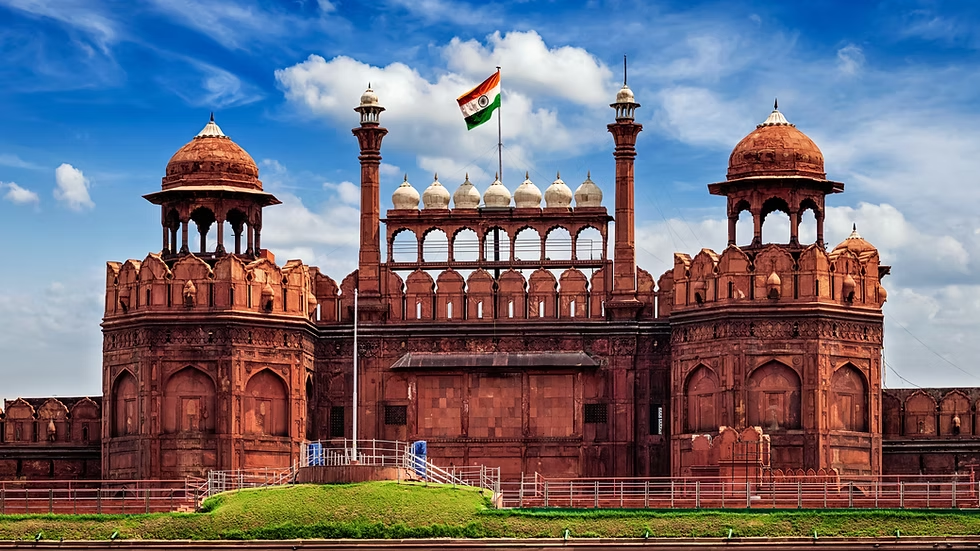India’s abrupt suspension of the 1960 Indus Treaty a pact that has survived wars and decades of tension is raising grave economic concerns in Pakistan. The treaty had ensured Pakistan received about 80% of the Indus River system’s waters, a lifeline for its farms, cities, and industries. With New Delhi putting the agreement “in abeyance” after a recent terror attack, experts warn that Pakistan’s economy faces widespread disruption across agriculture, employment, industry, and urban water supply all while the country is already grappling with water scarcity and financial stress.
“What matters most… is not the threat of a sudden cutoff, but the erosion of reliability of a water system that millions depend on,” noted a water policy analyst. In the absence of the treaty’s guarantees, Pakistan now confronts a level of uncertainty that could ripple through food security, jobs, and even global markets.
Agriculture and Food Security at Risk
Pakistan’s vast agricultural sector will be the first and hardest hit by the suspension of the Indus treaty. Nearly 80% of the country’s cultivated land, about 16 million hectares, depends on irrigation from the Indus River system. About 93% of Indus waters are used for irrigation, sustaining major crops like wheat, rice, sugarcane, and cotton.
Farmers in Punjab and Sindh provinces rely on this water for year-round cultivation. Any prolonged interruption or reduction in flow could be devastating. Experts warn that reduced water availability will lead to lower crop yields and even food shortages, eroding a crucial economic backbone. The Indus irrigation system supports roughly 25% of Pakistan’s GDP when accounting for agriculture and related industries.
Food security is a major worry. About 80% of Pakistan’s food supply is tied to Indus-dependent irrigation. If India withholds or times water releases during critical planting periods, production of winter wheat and summer rice could drop significantly. A recent report noted that any disruption could trigger reduced yields, food insecurity, and further instability. With low reservoir storage capacity (roughly 10% of annual inflows), Pakistan has minimal buffer against water shocks.
One senior economist estimated that if shortages persist, Pakistan’s GDP could shrink by 1.5–2% annually due to agricultural losses and their broader impact. Such a hit could force the country to import more food, strain foreign exchange reserves, and possibly affect global grain markets.
Rural Livelihoods and Employment
The agricultural crisis also threatens the livelihoods of tens of millions of Pakistanis. Farming remains the country’s largest employer, especially in rural areas. Roughly 68% of the rural population’s income depends directly on agriculture irrigated by Indus waters.
If water shortages reduce planting acreage or harvest volumes, rural incomes will plummet. Many farmers are already debt-burdened, and crop failures could increase loan defaults and trigger rural-to-urban migration. The treaty’s stable water allocation allowed rural Pakistan to grow economically for decades that stability is now compromised.
In canal-irrigated regions, farmers fear they may be forced to leave land fallow or switch to less water-intensive, lower-value crops. That means reduced employment opportunities, lower wages, and losses for suppliers of seeds, fertilizer, and machinery. A prolonged water shock could push rural poverty levels higher and overburden urban job markets.
Energy and Industrial Output Squeezed
Beyond farming, Pakistan’s industries also rely heavily on the Indus system. Hydropower provides a significant share of national electricity and depends on river flows. Major plants like Tarbela and Mangla are at risk if flows drop.
A reduction in power generation could lead to increased outages, forcing factories to curtail operations or shift to expensive diesel generators. This would raise production costs and hurt competitiveness, especially in energy-intensive sectors like textiles and steel.
The textile industry, Pakistan’s largest exporter, is particularly vulnerable. Cotton cultivation, heavily dependent on irrigation, already suffers from poor yields. Any further impact could disrupt supply to mills, increasing costs and threatening $16.5 billion in textile exports. Likewise, Pakistan’s $2.5 billion rice exports rely on paddy fields fed by the Indus.
Manufacturing hubs like Karachi, Faisalabad, and Lahore could face dual disruptions in electricity and water supply, compounding the cost of doing business and reducing industrial output.
Urban Water Supply Under Strain
Pakistan’s cities are not spared. Karachi, Lahore, Hyderabad, and Multan rely on the Indus system for drinking water. A sustained cut in flow would lead to rationing, price spikes in tanker water, and deteriorating sanitation conditions.
With aging infrastructure and high urban growth, cities are already struggling to meet demand. A sudden drop in Indus-fed water could lead to civil unrest. The risk of water-borne disease also rises with decreased hygiene access. Over-reliance on groundwater, already polluted in places, would worsen.
The urban poor would be hardest hit by any sustained water crisis, unable to afford alternatives. For businesses, water shortages could disrupt operations and increase overheads, particularly in sectors like food processing, electronics, and hospitality.
Global Economic Ripple Effects
The suspension of the treaty also risks international consequences. Reduced rice and cotton exports from Pakistan could affect global prices, especially in Asia and Africa. Pakistan is one of the top exporters of basmati rice and cotton yarn, which feed into global textile chains.
If Pakistan is forced to limit exports to feed its population, food and textile supply chains could be disrupted globally. Analysts estimate Pakistan’s rice exports account for roughly 4 million tons per year, and its textile sector is tightly woven into fast fashion supply chains worldwide.
There’s also a potential humanitarian fallout. A water or food crisis might trigger donor responses, with the World Bank, IMF, and UN agencies stepping in to stabilize the economy or address public health emergencies.
While India currently lacks sufficient upstream infrastructure to drastically cut off flows overnight, the mere suspension of the treaty has introduced a new layer of unpredictability. Long-term investments in agriculture and industry may stall in Pakistan as planners anticipate further disruptions.
Also Read: India Signs ₹63,000 Cr Rafale Deal to Boost Naval Power.
























